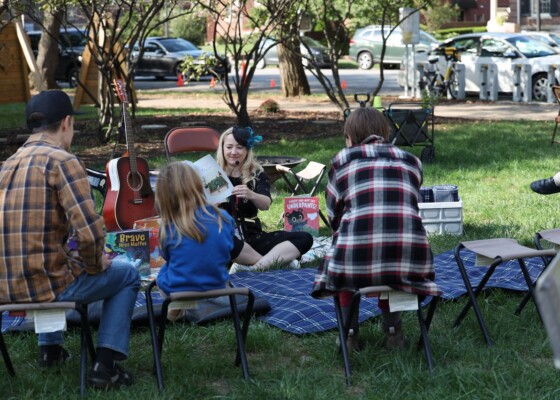Time, Talent, Treasure – and Thought
May 20, 2011One of the most innovative and far-reaching humanities organizations in America started right here in Indiana—at Valparaiso University, in the northwest corner of the state.The Project on Civic Reflection (PCR)…
Elizabeth responded by starting the Project on Civic Reflection, which encourages civic groups and organization to cultivate reflection in the midst of action through the practice of humanities-based reading and discussion.
Simple Setting. Complex Discussions
The ingredients of civic reflection are simple: a short text, a group of people, and a facilitator. But the resulting discussions can be quite complex, as the chosen poem or story provokes participants to explore their thoughts and values in conversation with colleagues. To help organizations integrate this group reflection into their activities, the Project on Civic Reflection offers regular facilitation trainings, an online resource center, and anthologies like The Civically Engaged Reader, full of short provocative readings to stimulate rich conversation about giving, serving, leading and associational life.
Since 1998, the Project on Civic Reflection has worked with hundreds of educational and service organizations nationwide and trained more than a thousand facilitators. In Indiana alone, civic reflection has been picked up by groups ranging from the American Legion to AmeriCorps.
Clarity, Community, Commitment
We asked Elizabeth why she believes civic reflection is important. She responded, “Reading and discussion is a way to create thinking space—in the midst of service work and other kinds of civic activity. By reading and discussing a short text, a group of people engaged in ‘good works’ can slow down and think and talk together about the good in that work, gaining clarity, community and commitment from the process.” Or, in the words of a recent participant, “the Civic Reflection process is an amazing tool for creating real dialogue, deepening relationships, and encouraging critical thinking!”
This Spotlight post was written by Brittany Smith, Indiana Humanities intern.


